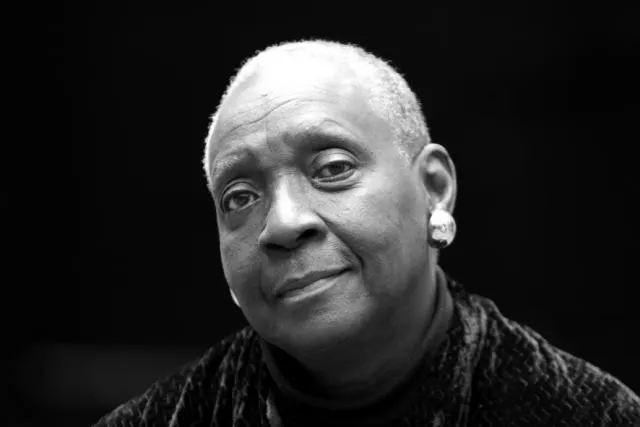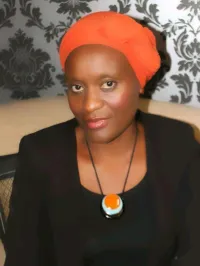Blog
How we think about mental health impacts our well-being. In these pages I offer my perspective - an African-centered, black-centered view of us and of what makes us well. an alternative path to healing both the personal and the collective.

Honoring Our Foremothers
When I was 17 and going through the darkest night of the soul, the book “I Tituba, Black Witch of Salem” by Maryse Condé fell into my hands. I opened it, read the first paragraph and had to close it shut again to catch my breath. I took a deep breath and reopened the book to continue reading. After another paragraph or two, I paused again to take it all in. Although I was eventually able to go for longer stretches - say, a whole chapter - that was the pattern my reading of this book would follow. I had to take it in one bite at a time as I was overwhelmed by all the hidden places it touched within me, all the unknown parts of me it was uncovering.
The book is a fictionalized account of the life of Tituba - a real victim of the Salem witch trials in the late 1600’s - her early life in Barbados, her journey to Boston then Salem, Massachusetts as an enslaved person, her arrest, and life after Salem. The narrative is gripping and it took my breath away. Although I’d been an avid reader for years, I had never read anything like it. I had never heard a voice like that. I had never been addressed in that way as a reader and I had never felt myself implicated in a story in the way that I did with Tituba. Never had I been spoken to and about so directly, openly, and profoundly. Never had I felt seen and heard with such accuracy, as a reader or otherwise.
It took me decades to understand what happened to me the moment I opened I Tituba, Black Witch of Salem; to fully grasp what this book and its author have given me over the years. In reading Maryse Condé’s words, my own voice echoed inside of me. I heard it in a way I’d never heard it before that felt very true and powerful and life-giving. In essence, she gave me my voice. So, when I heard last week of the passing of this giant of a woman, I couldn’t help but reflect with deep gratitude on what she has given me despite the fact that we never met.
At the time of my first reading I was mainly aware of the literary aspects of how Condé’s voice impacted me but, over the years, after many readings and re-readings, after experiencing the unfolding of my own life and work, I realized that the strength of my connection with the protagonist and with the the work itself went far beyond the literary.
When I read this book now, I can see so many parts of myself that I had neither the words for nor an awareness of at 17. I can see the writer. I can see the healer. I can see my reclamation of my African spiritual inheritance. I can see the pan-Africanist - the part of me that knows the indivisibility of black people in the world, that understands in a felt sense kind of way the truth of our relatedness and its significance. Not in a romantic sense that suggests the absence of conflicts or contradictions, but in a family tree kind of way - all messiness included. Lastly, I can see my Ancestors. I can see how they’ve been speaking to me over the years, since way before I could understand their language.
In the writer herself I found a kindred soul who was on the same quest as me. A quest for the restoration of that which had been battered and broken into pieces. A quest for the mending, the joining back together of the broken pieces. In her life and work I felt a walking-the-talk kind of energy, an actual effort and attempt at putting the pieces back together, for herself and for the rest of us.
From a mental health perspective Tituba quite literally took me from a state of depression to a state of aliveness and re-engagement with life. Looking back at it now with my psychotherapist goggles on, it confirms to me my view that good mental health is about alignment, about aligning with who we truly are. I Tituba, Black Witch of Salem showed me who I am on a deep level, deeper than I could comprehend at the time, and truer than anyone around me could have shown me at the time. I re-read it every time I forget who I am.
The voice I found within me when I first read Maryse Condé is still with me. Later, when I started my psychotherapy practice and was creating the website for it, I went back to that voice. I wanted each woman who came to my website looking for my services to feel how I felt when I opened that book all those years ago. I wanted her to feel seen, and heard, and important; I wanted her to feel special and cared for. And I wanted her to know that I was speaking to her directly. That voice has allowed me to find the clients I was looking for and for them to find me. It gives me the privilege of helping the people I am here to help, the people who need what I have. It gave me the means to continue the mending that others, including Ms Condé, started before me. Maryse Condé gave me that voice, at least she uncovered it for me.
Tituba was only my introduction to Maryse Condé. I went on to read several of her other books, including Ségou, a two-tome historical novel set in 18th century West Africa and her best known work internationally. She was a prolific writer with an impressive body of work and her writings continue to nourish me at the deepest levels of both my intellect and soul to this day.
In my view, Maryse Condé was a master at her craft, a champion of black consciousness, and a woman who truly embodied what I call the African Goddess - the Divine Feminine Black energy of this world. When she was brought into my life, I was surprised that I’d never heard of her before. I thought everyone should know her. If you haven’t read her, I highly recommend it. It doesn’t matter which of her books you start with, there are many to choose from. If you do read her, I hope you are as deeply nourished by her work as I continue to be.
Merci, Mme Condé. May your soul rest in peace after all your hard work on this plane.
Copyright © 2024 Yema Ferreira, All rights reserved.
